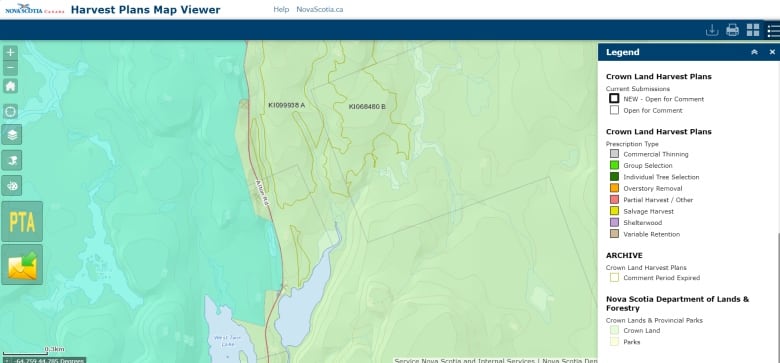Nova Scotia Forest fires started by logging 'machine tracks' prompt calls for temporary ban on logging - It begs the question if this contributed to the countless fires that have ravaged British Columbia.
120-hectare fire near Springfield were started in late May by "metal machine tracks creating sparks on rocky terrain."
Nova Scotia government says it's monitoring conditions, but won't commit to halting forestry activity
Some Nova Scotians are calling for a ban on logging during hot, dry weather after it was revealed that machinery in the woods caused two forest fires that spanned more than a hundred hectares in Kings County last month.
Nova Scotia's Department of Environment determined a 13-hectare fire in McGee Lake and a 120-hectare fire near Springfield were started in late May by "metal machine tracks creating sparks on rocky terrain."
The department didn't respond to questions about what machine made those tracks and what kind of work was being done, however logging machines such as feller bunchers and forwarders could create those kind of tracks.
Photos taken in both areas after the fires also show logging activity — there were piles of logs on the side of roads and charred stacks of logs.
"To be going into that kind of place and working, it just seems really risky," said Bev Wigney, who runs the Facebook group Annapolis Royal and Area Environment and Ecology.
"The ground is all dried out. It's really easy to go up in flames. Like you pick up a handful of moss or ferns and they're just like crumbling with dryness, and it takes nothing to set that kind of debris on fire."
She wants Nova Scotia to follow the lead of New Brunswick, which last week closed all Crown land, except provincial parks, to recreational and industrial activity, including forestry.
Nova Scotia's Department of Lands and Forestry said it's working closely with the forestry industry to monitor conditions, but wouldn't say if a ban on forestry would be enforced.
Nova Scotia has been under a province-wide fire ban for more than a week. That means campfires and backyard fires aren't allowed, but forestry activity continues.
In addition to the Kings County fires, there were at least three other fires burning in remote areas of the province in late May, but Nova Scotia Environment couldn't determine their causes.
The 120-hectare fire near Alton Road in Springfield was considered out of control due to high winds, and required more than 50 personnel and two helicopters to put it out.
The Department of Lands and Forestry wouldn't say whether that fire was on Crown land. But a map of the fire area near Springfield provided to the Chronicle Herald matches with a provincial map online that shows forestry on Crown land.
Source:


No comments:
Post a Comment